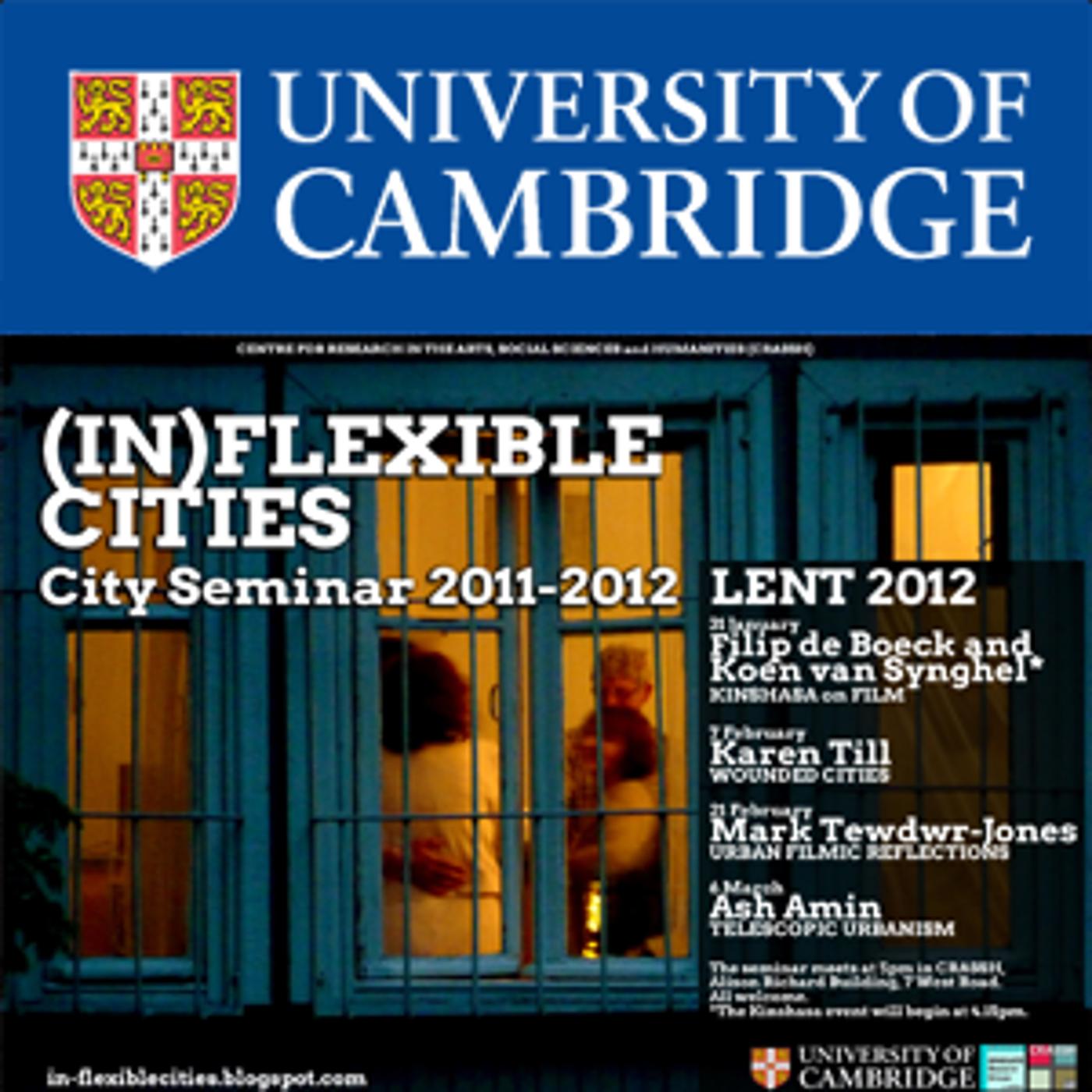City Seminar - 26 February 2013 - Fluid Cities: Circulation and the Politics of Mobility
Update: 2013-03-05
Description
David Pinder (Lecturer in Department of Geography, Queen Mary, University of London)
Abstract
Cities are profoundly mobile. Yet they are also in many ways fixed, solid and enduring. Movement and flow typically require fixed infrastructures to enable them, while processes of deterritorialisation are accompanied by those of reterritorialisation. This presentation addresses the long-standing tension in urban writings between movement and settlement, and between flow and fixity, by addressing attempts to re-imagine and re-conceptualise urban mobilities through contested visions of circulation. The focus is on selected architectural and urban projects developed within modernist and avant-garde circles, especially in western Europe during the 1960s. What might be made of experimental designs and proposals for cities to become mobile and nomadic themselves? How to approach these visions today, at a time when mobilities and nomad thought are high on urban agendas? How might reconsidering them enable insights into the politics of mobility, and hence into debates about possible mobility futures?
David Pinder is Reader in Geography at Queen Mary, University of London. His research focuses on utopianism and cities, with particular reference to modernist and avant-garde movements in twentieth-century Europe; and on art, spatial practices and urban politics. He is author of Visions of the City: Utopianism, Power and Politics in Twentieth-Century Urbanism (2005) and guest editor of a theme issue of Cultural Geographies on ‘Arts of urban exploration’ (2005). He was a Velux Visiting Professor at Roskilde University, Denmark, in 2011-12.
Abstract
Cities are profoundly mobile. Yet they are also in many ways fixed, solid and enduring. Movement and flow typically require fixed infrastructures to enable them, while processes of deterritorialisation are accompanied by those of reterritorialisation. This presentation addresses the long-standing tension in urban writings between movement and settlement, and between flow and fixity, by addressing attempts to re-imagine and re-conceptualise urban mobilities through contested visions of circulation. The focus is on selected architectural and urban projects developed within modernist and avant-garde circles, especially in western Europe during the 1960s. What might be made of experimental designs and proposals for cities to become mobile and nomadic themselves? How to approach these visions today, at a time when mobilities and nomad thought are high on urban agendas? How might reconsidering them enable insights into the politics of mobility, and hence into debates about possible mobility futures?
David Pinder is Reader in Geography at Queen Mary, University of London. His research focuses on utopianism and cities, with particular reference to modernist and avant-garde movements in twentieth-century Europe; and on art, spatial practices and urban politics. He is author of Visions of the City: Utopianism, Power and Politics in Twentieth-Century Urbanism (2005) and guest editor of a theme issue of Cultural Geographies on ‘Arts of urban exploration’ (2005). He was a Velux Visiting Professor at Roskilde University, Denmark, in 2011-12.
Comments
Top Podcasts
The Best New Comedy Podcast Right Now – June 2024The Best News Podcast Right Now – June 2024The Best New Business Podcast Right Now – June 2024The Best New Sports Podcast Right Now – June 2024The Best New True Crime Podcast Right Now – June 2024The Best New Joe Rogan Experience Podcast Right Now – June 20The Best New Dan Bongino Show Podcast Right Now – June 20The Best New Mark Levin Podcast – June 2024
In Channel





